X-Factor Origins Part 1: Marguerite
It’s about that time that I sat down at the computer and began writing about films. After all there’s only so much of the day I can fail at being a world class assassin. However, instead of the recently released Captain America: Civil War: Part 1: How many more bits can we add to the title, we will examine bad singing. WTF? Don’t worry, read on and soon, even the title of the post will make some sense.
In some regards, you would have thought that with the awards season long over for now that we would return to a sense of normality where we’ll be just commenting on whether or not Batman wears steel enforced underpants underneath his suit. He does in case you wondered. However, we’re far from being done right now with the “true story” films.
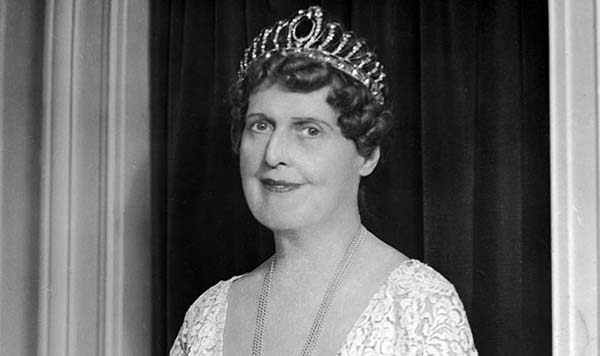
Florence Foster Jenkins. Maker of ears bleeding back in the day. Still sang better than Will.I.Am…
This is the tale of the first X-Factor auditions from the start of the 20th century, just without anyone like Simon Cowell to turn around and say that they have no chance whatsoever. Just kidding (although, I suspect that Hollywood would make such a thing if there was any money in it). The two productions on for review are based on the real-life character Florence Foster Jenkins, and the same tragic tale of some rich woman who basically paid lots of money to do stuff and perform badly in front of a live audience who then died in a rather bad way.
There is a key difference with the pan-European production of three countries, Marguerite, the subject of today’s blog post.
In this film we have a story loosely based on the events of Florence Foster Jenkins with locations and characters changed whereas the other British-French produced version with Meryl Streep and Hugh Grant is more devoted to the actual story and people involved. But which one is the better version? Subjective of course but at the very least, it’s interesting to see which direction the two productions take and perhaps which will be the better one to see overall.
Be warned, there are spoilers for the film in this post, so if you don’t want to know the score, then look away now. Not sure how we can tell you when to look again considering this is all written…
First of all, this version is in entirely in French and requires you to pay attention to the subtitles.
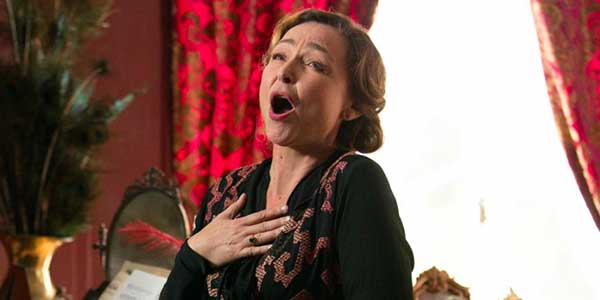
Bonjour.
Ok, so for the two people who are still here after reading the film’s subtitled from French, we find ourselves stuck in Poirot times, just after the first world war, if memory serves, and we’re at a lovely house, as opposed to be stuck in an office, accusing someone of being the killer.
Marguerite (Or Margarine, probably I’ll spread that through the post…. I’ll get my coat) Dumont, played by Catherine Frot, is a very wealthy woman. She’s a lover of music and the opera by all accounts and it seems she has a bit too much free time on her hands, seeing as apparently she doesn’t need for anything.
You see, she loves to sing for her friends and for good causes, even get dressed up in various costumes with the staff (and a lot revolves around the big butler who has been serving her for years) taking part as what we find ourselves descending onto at the beginning of the film, although…. How to put this lightly…. She’s f*cking terrible as a singer. Ears bleed, pandas die, and everyone has a good laugh to themselves whenever she turns up on stage.
The staff she employs even has to use cotton wool to save themselves from the voice that sunk a thousand ships. It’s apparently well known enough about Margarine’s singing that we see a couple of wee scamps sneak in to see the performance themselves. Lucien Beaumont (played by Sylvain Dieuaide) works for a publication somewhere whereas his friend played by Aubert Fenoy just likes to stri sh*t up and make statements of things for his own ends.
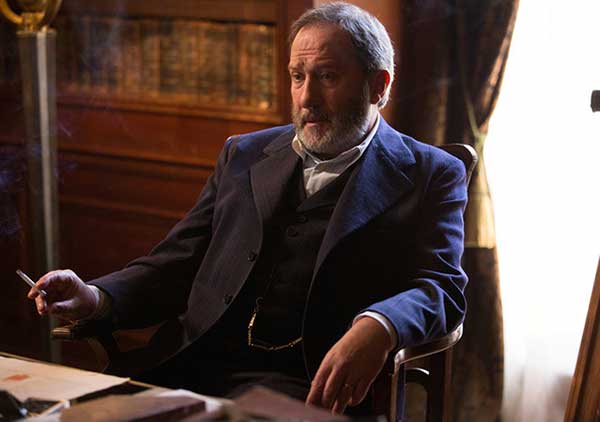
The things we do for money, eh?
Lucien is somewhat taken with a young woman singing at the time, Hazel (Christa Théret) and they have a chat. Even the hostess is quite taken with her voice, having a chat with Hazel just before we see what Margarine is really made of. How can she follow such a great performance?
For some reason which was never really explained, no one is willing to to tell our main character that she’s a bit sh*t and should probably take up something else like knitting or managing a premier league football team. She’s been somewhat indulged by her husband, played by André Marcon. Somewhat as in return, she’s financing various projects for him, so it’s not selfless in the least.
Far from being the beacon of light as a husband, he really does start the story as being someone who is only hanging around for the money as he wanders off to have sex with one of Margarine’s friends. Oh and to avoid certain occasions of singing, he breaks his car and then gets stuck in the exact same place in the middle of nowhere. Mon dieu indeed.
However for Margarine, this hasn’t been enough and sure enough the real problem begins when she decides to perform in front of a real audience, and ultimately Margarine’s downfall. You read that right, downfall, which of course pretty much gives away which way this is going to go and of course way off from what happened to Florence Foster Jenkins, something which you do see in the British-French made film.
As we see time progress on, Margarine sings a bit more in public and also on record, with increasingly bad judgement / sadistic pleasure on everyone’s parts. She hires a big chap of a washed up singer / pre Madonna Atos Pezzini (played by Michel Fau) who turns up with some right weird buggers, one of whom is a bearded woman who the butler of the house is more than happy to f**k. No jokes, that happens. Nothing prepares you to the brief moment of shock and awe.
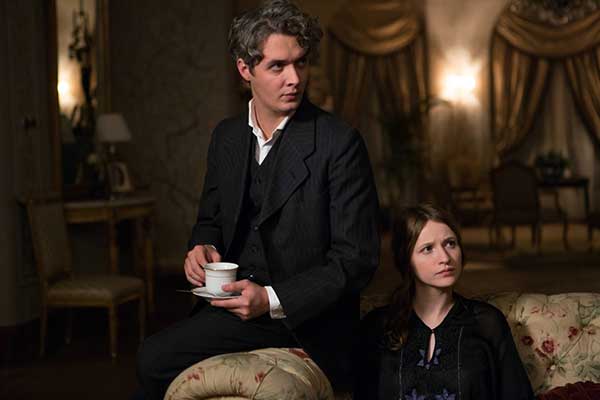
What? ITV’s had the show recommissioned?
Even more so when the little political a*sehole we mentioned earlier, played by Aubert Fenoy praises Margarine despite also taking great delight at her lack of talent. He even managed to use her as a statement during an open mic night of sorts where she destroys the French national anthem while all sorts of other crap happens on stage. This results in a fight breaking out in the place. Yet still at this point is no-one saying “Hang on love, best call it a day.” Or however it should be said in French.
In fact it becomes blatantly obvious that at all times, Margarine is basically being used by almost everyone for their own ends, which is mainly for money and by all accounts, some twisted form of entertainment. They’re cold, calculating and in essence, it’s like the humanity of everyone is leaking away from the film.
There are moments however where Margarine is aware of what’s going on and yet all she wants to do is sing on a stage, lest she goes start raving mad, something which kind of comes out of nowhere. That outburst is actually a sign of things to come and perhaps most when the film diverts from what has been written in history.
It takes a dark turn down a path of insanity as Margarine’s world is crashing down after a performance in front of a large crowd and in fact as we see going forward, it wouldn’t take much more to break her completely. It’s quite the contrast in terms of the location and characters we’ve seen at the beginning of the film. Colour and comedy had been replaced with plain basic surroundings, with sadness and unease.
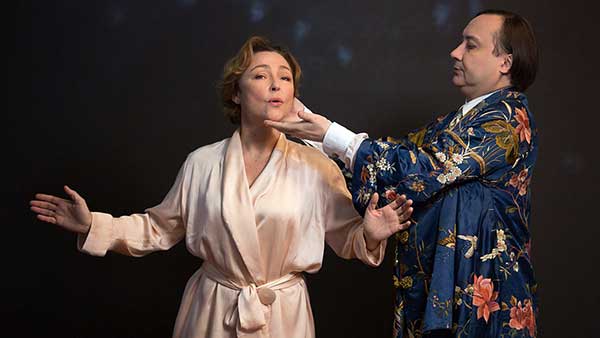
Spit out your gum dammit!
It seem that it is required for Margarine to be mentally broken inside before the husband really tries to step in, to save her. He even pretty much gave up the mistress at this point, feeling compelled to stay at her side, though given the motivations up to this point, you’d be forgiven for thinking if he was just protecting his livelihood.
It was also rather interesting that until this moment, a number of the characters we had been introduced to had disappeared for quite some time until this end game, and the impression they leave is that they’ve already accepted that she’s gone or perhaps even worse, they seem to just hang around wanting to see what happens, more than actual real concern for Margarine herself.
This is actually one of the areas where it really is open to interpretation to the viewer as what the motivations for this strange group to all meet up together again so whether or not that was correct to say, really couldn’t say for sure.
For the acting, Catherine Frot makes it effortless in terms of how to sing badly and she certainly holds your interest throughout. The brief moment where she was able to start singing well, you actually wonder if this is the moment where it all came together, though the story would of course have other plans.
André Marcon gave the most ground performance of everyone, where in the strange way, you understood why he did what he did, even if it wasn’t for the best of reasons. He did at least with the butler try to protect Margarine from the truth to save her from being distressed, even if at times it was just to make life easier for himself. The genuine concern portrayed also solely at the end, was real growth for the character and at least, you thought he may actually come away a better person.
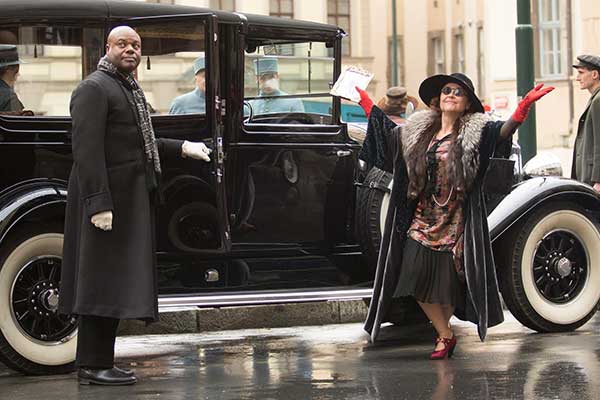
Bonjour.
However the same couldn’t really be said for the rest of the cast. While the actors and actresses involved were fine, they didn’t really have anything more in terms of character change or growth so you kind of wonder why were they there at times? Just to extend the pain?
There was a clearly stupefying moment right at the end which even just writing about it, doesn’t do it justice. Remember the butler mentioned right at the beginning? The one who had served her well for so many years and you thought was on her side, being loyal, trying to help the husband with Margarine? He just wanted to see her finally break for a photo he wanted to take. A completely genuine what the f**k moment if you ever you wanted to see it.
So Margarine, or perhaps for this final part, we finally refer to the correct title; Marguerite. Was it worth seeing? That is really tough to answer.
On the one hand, you do get some real laughs from the singing and some of the ridiculous nature of the events that come to unfold during the first half of the film and the locations, costumes and story does the film justice. The cast as well, though not well known in this country did themselves credit to say the least.
But the latter half of the film goes dark and perhaps goes in theme, a bit too off the edge in terms of trying to be too artsy in its presentation. A number of European films tend to have this where they cannot help but add moments where the writers take some acid and present what they thought at the time to be wonderful where it just confuses everyone else. Think of that crap you see in the Tate Modern and then you wonder how that was art basically.
Remarkably the fact that it goes onto it’s own path from the story it’s based does mean that the creators wanted to try to forge ahead on their own and give their own identity to the film. Which for the most part they succeed in doing. Maybe it did go on a bit too long and you could maybe get lost a couple of times with moments and characters, but not to the point you’d be entirely bored.
For the vast majority of people, if you would see this, it would only be the once I suspect. I myself would be fine with the one viewing. But remarkably I was glad I was able to watch this different take on the true story itself, following the same path but choosing to lay the ground for it’s own identity. Not often I can say that when watching someone on screen while they murder my ears.

Comments
X-Factor Origins Part 1: Marguerite — No Comments
HTML tags allowed in your comment: <a href="" title=""> <abbr title=""> <acronym title=""> <b> <blockquote cite=""> <cite> <code> <del datetime=""> <em> <i> <q cite=""> <s> <strike> <strong>